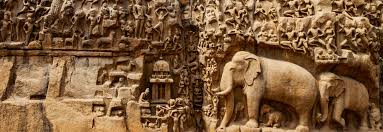Ph.D. in Classics and Ancient History: Introduction, Admission, Registration, Eligibility, Duration, Fees, Syllabus 2024

Introduction:
A Ph.D. in Classics and Ancient History offers a comprehensive exploration of the civilizations of antiquity, combining the study of classical languages, literature, and culture with the examination of historical events, social structures, and cultural developments. This interdisciplinary program delves into the richness of ancient civilizations, providing students with a holistic understanding of the Greco-Roman world and its enduring impact on contemporary society.
Admission Process:
- Submit an online application including academic transcripts, letters of recommendation, and a statement of purpose.
- Possess a bachelor's or master's degree in classics, ancient history, or a related field.
- Demonstrate proficiency in ancient languages such as Greek and Latin.
- Participate in interviews or entrance exams to assess research interests and academic fit.
Eligibility:
- A bachelor's or master's degree in classics, ancient history, or a related field.
- Proficiency in ancient languages and relevant research methodologies.
- Demonstrated research aptitude and academic excellence.
- Fulfillment of any additional requirements specified by the institution.
Completion Time:
Completing a Ph.D. in Classics and Ancient History is a journey that typically spans between four to six years of rigorous full-time study. This interdisciplinary program offers a comprehensive exploration of the ancient Mediterranean world, combining the study of classical languages, literature, and culture with the examination of historical events, social structures, and cultural developments.
Career Opportunities:
- University professor or researcher in classics or ancient history departments.
- Curator or museum professional specializing in ancient artifacts and exhibitions.
- Archaeological consultant or heritage manager for government agencies or cultural organizations.
- Opportunities in publishing, public outreach, and cultural heritage management.
Syllabus:
- Advanced coursework in classical languages, literature, history, archaeology, and art history.
- Seminars exploring specific topics such as ancient philosophy, religion, and daily life.
- Independent research leading to a doctoral dissertation focused on a chosen aspect of classics or ancient history.
Internship Opportunities:
- Participation in archaeological excavations, museum internships, or cultural heritage projects.
- Collaboration with research teams and institutions specializing in classical studies or ancient history.
Scholarship and Grants:
- Institutional scholarships, research grants, and teaching assistantships available based on academic merit and research potential.
- Funding opportunities from government agencies, foundations, and private organizations supporting classical studies and ancient history research.
FAQs:
Can I apply with a bachelor's degree in a related field?
Yes, applicants with a bachelor's degree in classics, ancient history, or a related field may apply, although some programs may prefer candidates with a master's degree.
Are there opportunities for international research during the program?
Many programs offer opportunities for students to participate in archaeological excavations, research projects, and study abroad programs focused on ancient civilizations.
What types of research topics can I pursue for my dissertation?
Dissertation topics may include studies of ancient texts, archaeological sites, social structures, cultural practices, or any aspect of classics and ancient history that interests you and contributes to scholarly knowledge.
